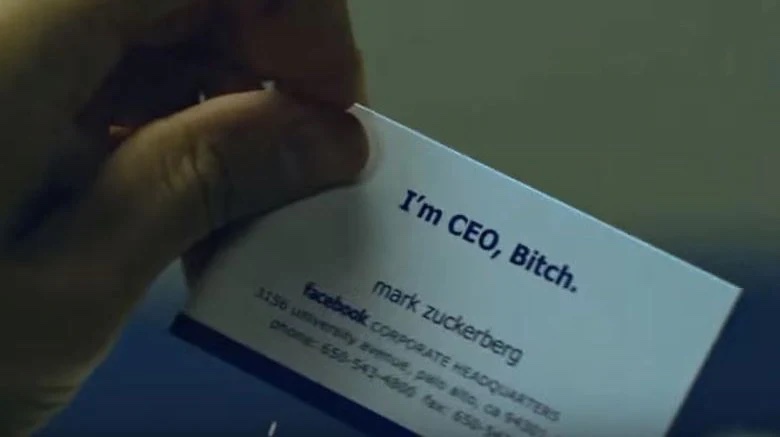When you have nothing to lose, you may speak your heart out.
Once things with your business or/and the position you hold start getting serious, you have shareholders and employees with their families whom you’re responsible for. The risks for saying something that may get misinterpreted are just too high.
Earlier this week I was having a conversation with a person who is in a very high position of a large company and wanted her to speak about a certain, not at all controversial (in my view) aspect of her work on my podcast Are You Human. Her legal team didn’t let her.
And it wasn’t the first instance when I experienced maybe-a-little-bit-overprotecting shareholder-interest gatekeepers. Many of our high calibre speakers on Girls in Tech events very carefully prepared on what they ought and ought not to say to be on the safe side. We needed to run questions with their legal department first.
Even I sometimes wonder if when Untrite gets big and more scrutinised, I will be asked to remove some of my thoughts written in the past. I may not even think how I did in the past, but I may still be judged by the news seeking media and unforgiving public. The risk of statements being misconstrued is ever-present, and not to get too paranoid, but the Internet never forgets. What might seem innocuous in one context could be perceived quite differently in another cultural or social milieu. So I get that executives and leaders must exercise precision in their language, striving for clarity and context to minimise the likelihood of misinterpretation that could lead to reputation damage or even legal ramifications.
It’s not only about you
In the early days of Facebook, Mark Zuckerberg used to be famously known for his I-do-not-give-a-damn-what-you-think attitude. He even had “I’m a CEO, Bitch” written on his business card. These days with Meta’s market cap of $776.17B, he wouldn’t dare. From shareholders and investors to employees and customers, each group has a vested interest in his company’s performance and reputation. Executives’ statements hold the power to sway stock prices, influence investor sentiment, and shape public perception, so Mark must weigh his words against the potential impact they may have. These rebellious me-vs-them statements may feel empowering for a bit, but at the end of the day, you need to grow up if you want to play (and win) in the Market game.

If you remember Cambridge Analytica scandal that has blown to Mark’s face, you may recall his testimony in front on the US Congress. Facebook failed to protect user data and prevent manipulation of its platform. Some 87 million users had their personal information harvested for political purposes by Cambridge Analytica. In the hearing, Zuckerberg EVEN wore a suit and glided smoothly through interrogation. He said a “breach of trust” had occurred and in a later interview with CNN he said he was “really sorry”, and pledged to take action against “rogue apps”. Not counting 500k fine, him and Facebook got away unharmed.
Him and the other big tech guys get prepped for anything they say by the team of PR and Crisis Management specialists, so that even in the biggest reputation crisis, they may just pull through and continue cashing out on public negligence and naivety.
Can you be authentic?
Everything execs say or show to the public is perfectly engineered, from the cute family photos or activities and escapades documented on video to public speeches and interviews, so you may wonder if it leaves them with room to show some of their true personality.
Striking a balance between authenticity and image management is a delicate art. While maintaining an authentic connection with stakeholders is crucial for building trust, you need to project a positive public image. Openness about challenges and displaying vulnerability can foster relatability, but there is a thin line between being seen as soft and unfit for the role vs. being seen as a decisive leader.
Opinions expressed are solely my own and do not express the views or opinions of my employer.
The public often associates high-level executives with their respective companies, blurring the line between personal and professional identity. So those execs are naturally mindful of this interconnectedness and often highlight clear boundaries between their personal beliefs and their role as company representatives. Such clarity prevents personal opinions from overshadowing the company’s messaging.
Another thing is when a company employees are asked to do illegal or unethical things (Theranos case) and by signing super strict NDA, you’re just sealing their mouth with threats of legal repercussions.
I have many friends who work in finance who had to consent in their contract a total neutrality, sometimes to the extent of total public silence (and for that they’re extra compensated). They can’t publish opinions on Linkedin or elsewhere.
I understand it because company is protecting itself from any mistake an employee may do or say that can damage reputation, but the downside of it is that lots of those employees are banned from sharing value in their authentic voices, and that is one of the finest forms of building good reputation and PR.
Follow the money
But there are many fasades to this and it’s not only reputation of the company that it’s at stake. Usually, there is also direct money incentive involved.
Execs, founders and other folks holding top profile roles, are often locked with vesting schemes in their contracts that are mined with lots of NDA clauses. Until they can exercise their options and cash out, they’d be fool not to be extra careful. Losing big bucks because of loose lips hurts.

You’re the face of the company
Who would want to work for an egoistic douchebag that does not take account of anyone’s opinion? Well, maybe other such people. But when you’re setting your company for success, you want to work with the best. You’re the role model, you want to attract the best talent, you want to be seen as sharp in making good decisions and above all – projecting an image that you’ve got everything under control.
Founders and other executives play a pivotal role in shaping company culture and employee morale. Their words carry weight and can inspire, motivate, or dishearten the workforce.
Better safe than sorry
Unless you’re in entertainment where eccentric acts and words only fuel crowd’s excitement of seeing your rebel, punk image that’s contrasting with their day-to-day life, you need to behave.
It extends beyond making strategic decisions about how public perceives you. Our words can have a far-reaching impact, and execs know this. They’re trained by their legal and comms teams to exhibit strong leadership and integrity (even if in reality is often far from the truth).
I wish we see more authenticity in executive worlds, admitting wrongdoing as soon as it happens (just like when Toyota’s CEO admitted safety mistakes) and taking a pledge to do better. To err is human, but when you have millions of lives that depend on you, you better watch your mouth and walk the talk.


![Start-ups and start-downs [Evoque Journey] louveciennes @flickr](https://hankka.com/wp-content/uploads/2013/09/bfast.jpg)
![What are you afraid of? [Evoque journey] Donnie Nunley @Flickr](https://hankka.com/wp-content/uploads/2014/02/12331672305_9d924d76b0_z.jpg)

